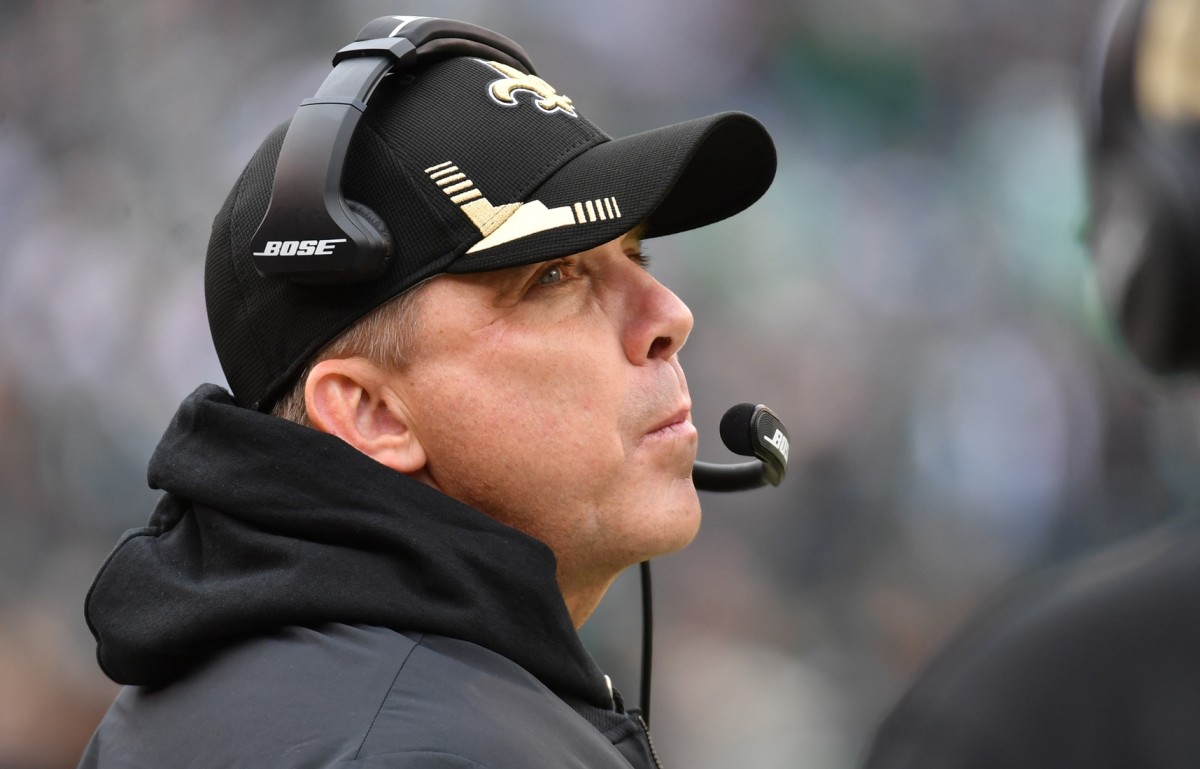Hiring Sean Payton Won’t Be Easy If Chargers Fire Brandon Staley
The Chargers did their best impression of the Chargers this weekend, blowing a 27–0 lead to the 9–8 Jaguars, and the simple and obvious next move seems to be firing coach Brandon Staley and hiring Sean Payton. It makes sense for many reasons, but it’s far from simple because of two factors that help define life in America: money and race.
First, the reasons for the change. Last year Staley was the darling of many open-minded football fans for his correct and fearless embrace of analytics. Now he is being pilloried for the Chargers’ second-half meltdown against Jacksonville and a series of decisions that led to it. Questioning a coach’s choices, especially after we know the outcomes, is the easiest game in sports. But there are fair questions about whether Staley is the best leader the Chargers can find for their team. Pro sports are not about fairness or what anyone deserves. In a draft of coaches, Payton, who reached the playoffs nine times and won Super Bowl XLIV with the Saints, would go far ahead of Staley.

But Payton would cost a lot, in multiple ways. The Saints still own his rights. As my colleagues Albert Breer and Conor Orr have pointed out, previous trades for elite coaches (Bill Parcells, Bill Belichick, Jon Gruden) usually cost multiple picks. For example, Gruden, who has the same credentials as Payton, fetched two first-round picks, two second-round picks and $8 million when the Raiders traded him to the Buccaneers in 2002. But we haven’t seen this type of situation in so long that it’s really hard to know what a trade would look like. If the Chargers fire Staley and start negotiating with New Orleans, the Saints might view this like the NBA’s Pelicans and Thunder viewed the Anthony Davis and Paul George trades: When the other team is so clearly committed to acquiring your asset, you hold the leverage. Saints general manager Mickey Loomis, remember, was also an executive with the Pelicans when they dealt Davis.
Payton also has reasons to ask for a market-resetting salary. Chargers owner Dean Spanos generally prefers paying employees in rolls of quarters. Is he willing to make Payton the highest-paid coach in the sport? As the owner of the second team in a one-team market, Spanos should see it as an investment. His championship-worthy roster needs a championship-quality coach, and his franchise needs a rebrand. Think of what Steve Cohen has done with the New York Mets or how Steve Ballmer has run the Los Angeles Clippers. The combination of Payton and Justin Herbert would make the Chargers a completely different franchise.
But Spanos has to be forward-thinking enough to see it that way—and even if Spanos is willing to fire Staley, willing to pay Payton and savvy enough to negotiate proper compensation with the Saints, he will still be creating an incredibly dicey dynamic.
Staley is white. Payton is white. Spanos already irked a Black coach when he fired Anthony Lynn (33–31 regular-season record during a difficult transitional period) and hired Staley. Firing Staley just to hire Payton would be an obvious and flagrant violation of the NFL’s Rooney Rule, which now requires teams to interview “at least two diverse candidates from the Career Development Advisory Panel list, or a diverse candidate not currently employed by the club.”
There have been Rooney Rule violations before. In 2003, the league fined Lions president Matt Millen $200,000 for doing what the public is now demanding the Chargers do: Hire a winning coach who was the biggest name on the market. (At that time, it was Steve Mariucci.) The social climate has changed since ’03, and many Black coaches are justifiably less patient and more angry about the league’s lack of progress over an incredibly long period of time.
If the Chargers ignore the Rooney Rule entirely, NFL commissioner Roger Goodell would surely penalize them severely, as he should. That would cost the Chargers more draft currency, on top of whatever they surrender to the Saints, and it would also severely damage their reputation within the league and hamper the rebrand that a Payton hire is supposed to bring.
But following the Rooney Rule, in both letter and spirit, is not going to be easy. Black coaches have complained about sham interviews for decades, and those complaints are increasingly public. Former Dolphins head coach Brian Flores is suing the NFL over this.
If Black coaches want to interview with the Chargers, that is their right. But it would not be remotely surprising if Black coaches refuse Chargers’ interview requests unless the Chargers publicly proclaim they will not hire Sean Payton. In fact, this could be a pivotal moment for the movement to hire more Black coaches. Coaches could collectively decide they won’t talk to the Chargers unless the Chargers say they won’t hire Payton. The Chargers might still find a couple of Black coaches to interview, but the public and coaching community won’t see them as serious candidates.
Calling this situation explosive would be an understatement.
This is the NFL in 2023. Reasonable observers can see NFL teams consistently have lower standards for white candidates than for Black candidates, and have for decades. Black coaches can’t escape any of it. Firing Brandon Staley and hiring Sean Payton sounds easy—until you try it.
